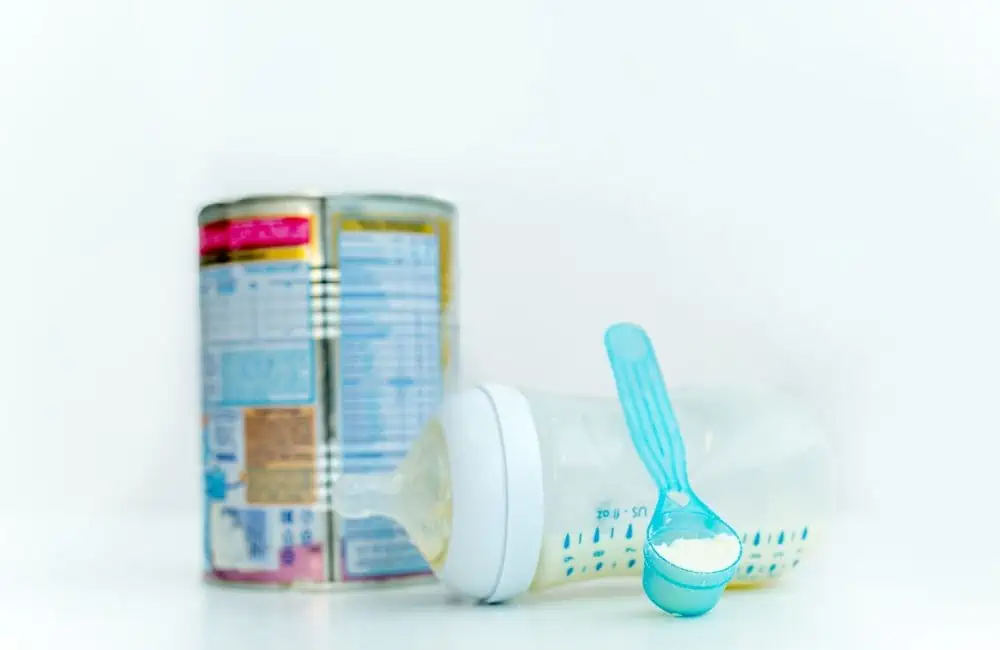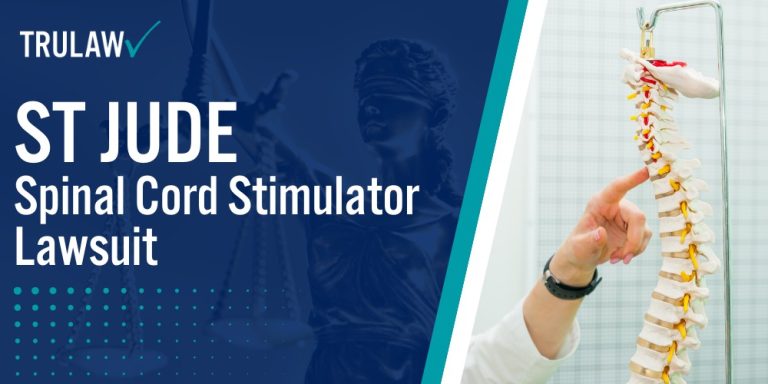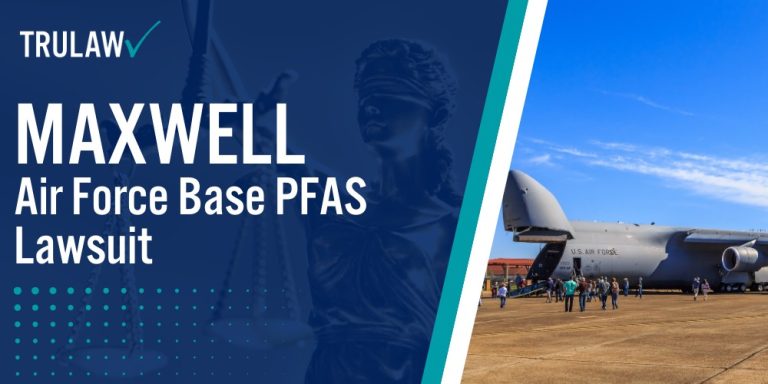Who Is Eligible for a Necrotizing Enterocolitis Lawsuit?
- Last Updated: August 4th, 2023

Attorney Jessica Paluch-Hoerman, founder of TruLaw, has over 28 years of experience as a personal injury and mass tort attorney, and previously worked as an international tax attorney at Deloitte. Jessie collaborates with attorneys nationwide — enabling her to share reliable, up-to-date legal information with our readers.
Legally Reviewed
This article has been written and reviewed for legal accuracy and clarity by the team of writers and legal experts at TruLaw and is as accurate as possible. This content should not be taken as legal advice from an attorney. If you would like to learn more about our owner and experienced injury lawyer, Jessie Paluch, you can do so here.
Fact-Checked
TruLaw does everything possible to make sure the information in this article is up to date and accurate. If you need specific legal advice about your case, contact us by using the chat on the bottom of this page. This article should not be taken as advice from an attorney.
Who Is Eligible for a Necrotizing Enterocolitis Lawsuit?
Necrotizing enterocolitis, also known as NEC, predominantly affects premature and underweight infants.
NEC can have numerous causes, from viral and bacterial infections to underdeveloped intestines, intestinal injuries, and a lack of oxygen or blood flow to the intestines during or after birth.

However, another cause of NEC that has recently come to light through various peer-reviewed studies is infant baby formula.
Certain cow’s milk-based infant formulas have been proven to increase a preterm baby’s risk of contracting NEC.
Products under the popular brand names Similac and Enfamil are regularly used to provide preterm newborns with the extra nourishment they need to put on weight.
A 2019 study published by the Cochrane Database of Systematic Reviews found that premature babies who were fed bovine milk-based infant formula products such as Enfamil and Similac were at a higher risk of developing NEC than preterm infants who only received donor breast milk.
Another study published by Paediatrics & Child Health in late 2021 found that compared to preterm babies being fed donor breast milk, neonates who received infant formula were at an increased risk of transfer to a tertiary care NICU for suspected NEC.

Because of recent research linking bovine-based milk formula with NEC in preterm babies, parents whose infants were diagnosed with NEC after receiving Similac and Enfamil have begun bringing lawsuits against the manufacturers of these products.
The plaintifs in these lawsuits have alleged that Abbott Laboratories (the manufacturer of Similac products) and Mead Johnson (the manufacturer of Enfamil products) neglected to warn healthcare providers and parents about the risks of feeding their cow’s milk infant formulas to preterm babies.
Plaintiffs have stated that these products were marketed as “equal” to human breast milk when, in fact, studies have shown that they are potentially hazardous to preterm infants.
Table of Contents
What Is NEC?

NEC is a gastrointestinal illness that occurs in the small and/or large intestine.
Bacteria that accumulate in the intestines can cause inflammation and even tissue death in the intestinal wall.
In severe cases, perforations can occur, allowing bacteria to spill into the abdominal cavity and infect other organs.
Bacteria from NEC can also get into an infant’s bloodstream and circulate throughout their body.
Common symptoms of NEC include abdominal swelling and pain, refusal to eat, fatigue, inability to gain weight, yellow and green vomit, bloody stools, changes in body temperature, and diarrhea.
If your baby’s gastrointestinal symptoms started recently and are mild, it could be an upset stomach due to an allergy to an ingredient.
Consider switching formulas to check if that solves the problem.
While there are treatments available, NEC can cause lasting damage to the intestines.
Some complications that may arise from NEC include intestinal strictures (a narrowing of the intestinal tract, which can lead to obstructions) and short bowel syndrome (which leads to malabsorption, or the inability of the intestines to properly absorb nutrients from food).
Who Qualifies for an NEC Lawsuit?
To qualify for an NEC lawsuit, parents must meet certain criteria.
The precise eligibility requirements are not set in stone, as NEC/baby formula litigation is only just beginning.
However, most attorneys are generally pursuing cases that fulfill the following basic criteria:
- The infant was born prematurely
- The infant received cow’s milk-based formulas, such as Similac or Enfamil
- The infant later developed NEC
- The family suffered compensable losses as a result of the disease
Families who are unsure about whether they qualify for an NEC lawsuit can seek the advice of an attorney.
Through a civil lawsuit, families may be able to recover compensation for hospital bills, surgery costs, reduced future earning potential, pain and suffering, and lost quality of life, depending on the circumstances of their cases.
What Products Are Involved in the Lawsuit?
A broad range of cow’s milk-containing formula products manufactured by Enfamil and Similac has been named in NEC lawsuits.
The products include:
Similac:
- Similac
- Similac Special Care
- Similac Special Care 20
- Similac Special Care 24
- Similac Special Care 24 High Protein
- Similac Special Care 30
- Similac Liquid Protein Fortifier
- Similac NeoSure
- Similac Alimentum
- Similac Alimentum Expert Care
- Similac Human Milk Fortifier
- Similac Human Milk Fortifier Concentrated Liquid
- Similac Human Milk Fortifier Hydrolyzed Protein Concentrated Liquid
- Similac Human Milk Fortifier Powder
Enfamil:
- Enfamil
- Enfamil Premature 20 Cal
- Enfamil Premature 24 Cal
- Enfamil Premature 24 Cal/fl oz HP
- Enfamil Premature 30 Cal
- Enfamil 24 and DHA & ARA Supplement
- Enfamil Human Milk Fortifier Acidified Liquid
- Enfamil Human Milk Fortifier Powder
- Enfamil Human Milk Fortifier Liquid High Protein
- Enfamil Milk Fortifier Liquid Standard Protein
- Enfamil NeuroPro Enfacare
- Enfacare Powder
There are numerous NEC lawsuits against the manufacturers of Similac and Enfamil pending in federal courts across the country, including a mini-class action in Illinois.
Many NEC lawsuits are being filed in Illinois because both Abbott Laboratories and Mead Johnson have headquarters in Chicago, though some families have chosen to file NEC lawsuits in their home states.
TruLaw and its team of seasoned lawyers fight on behalf of individuals harmed by drugs, devices, chemicals, and other products.
To date, TruLaw and its partner law firms have successfully collected over $3 billion through verdicts and settlements in all 50 states.
If you believe your baby developed NEC due to cow’s milk-based formulas such as Enfamil and Similac, you may be entitled to compensation.
Act quickly, before the clock runs out on the statute of limitations.
Use our Instant Case Evaluator to find out if you are eligible for a Necrotizing Enterocolitis (NEC) lawsuit right away.

Managing Attorney & Owner
With over 25 years of legal experience, Jessica Paluch-Hoerman is an Illinois lawyer, a CPA, and a mother of three. She spent the first decade of her career working as an international tax attorney at Deloitte.
In 2009, Jessie co-founded her own law firm with her husband – which has scaled to over 30 employees since its conception.
In 2016, Jessie founded TruLaw, which allows her to collaborate with attorneys and legal experts across the United States on a daily basis. This hypervaluable network of experts is what enables her to share the most reliable, accurate, and up-to-date legal information with our readers!
Here, at TruLaw, we’re committed to helping victims get the justice they deserve.
Alongside our partner law firms, we have successfully collected over $3 Billion in verdicts and settlements on behalf of injured individuals.
Would you like our help?
At TruLaw, we fiercely combat corporations that endanger individuals’ well-being. If you’ve suffered injuries and believe these well-funded entities should be held accountable, we’re here for you.
With TruLaw, you gain access to successful and seasoned lawyers who maximize your chances of success. Our lawyers invest in you—they do not receive a dime until your lawsuit reaches a successful resolution!
AFFF Lawsuit claims are being filed against manufacturers of aqueous film-forming foam (AFFF), commonly used in firefighting.
Claims allege that companies such as 3M, DuPont, and Tyco Fire Products failed to adequately warn users about the potential dangers of AFFF exposure — including increased risks of various cancers and diseases.
Depo Provera Lawsuit claims are being filed by individuals who allege they developed meningioma (a type of brain tumor) after receiving Depo-Provera birth control injections.
A 2024 study found that women using Depo-Provera for at least 1 year are five times more likely to develop meningioma brain tumors compared to those not using the drug.
Suboxone Tooth Decay Lawsuit claims are being filed against Indivior, the manufacturer of Suboxone, a medication used to treat opioid addiction.
Claims allege that Indivior failed to adequately warn users about the potential dangers of severe tooth decay and dental injuries associated with Suboxone’s sublingual film version.
Social Media Harm Lawsuits are being filed against social media companies for allegedly causing mental health issues in children and teens.
Claims allege that companies like Meta, Google, ByteDance, and Snap designed addictive platforms that led to anxiety, depression, and other mental health issues without adequately warning users or parents.
Transvaginal Mesh Lawsuits are being filed against manufacturers of transvaginal mesh products used to treat pelvic organ prolapse (POP) and stress urinary incontinence (SUI).
Claims allege that companies like Ethicon, C.R. Bard, and Boston Scientific failed to adequately warn about potential dangers — including erosion, pain, and infection.
Bair Hugger Warming Blanket Lawsuits involve claims against 3M — alleging their surgical warming blankets caused severe infections and complications (particularly in hip and knee replacement surgeries).
Plaintiffs claim 3M failed to warn about potential risks — despite knowing about increased risk of deep joint infections since 2011.
Baby Formula NEC Lawsuit claims are being filed against manufacturers of cow’s milk-based baby formula products.
Claims allege that companies like Abbott Laboratories (Similac) and Mead Johnson & Company (Enfamil) failed to warn about the increased risk of necrotizing enterocolitis (NEC) in premature infants.
Here, at TruLaw, we’re committed to helping victims get the justice they deserve.
Alongside our partner law firms, we have successfully collected over $3 Billion in verdicts and settlements on behalf of injured individuals.
Would you like our help?


